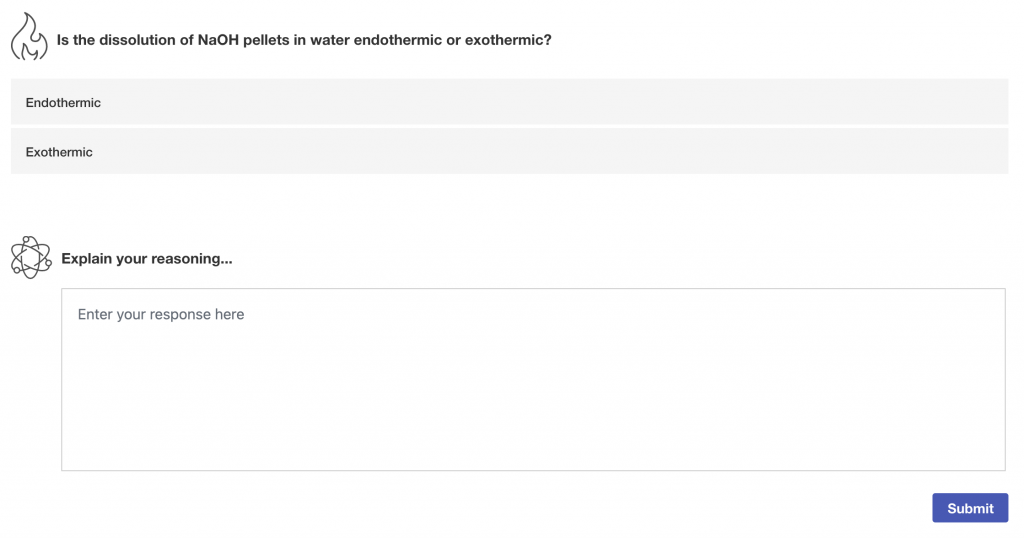When designing online learning environments, one question learning designers ask is how to best incorporate meaningful activities for learners. This is an important question, particularly when the content being presented online is a demonstration or hands-on in nature.
In my role as learning designer role in the Postgraduate Learning Design Team, I addressed this challenge when co-designing the short online course Drivers of Chemical Reactions with Dr. Morgan Alonzo. Part of this online course involved introducing learners to a video demonstration of Calorimetry, a process of measuring the amount of heat released or absorbed during a chemical reaction.
Predict – Observe – Explain
I recommended the use of a Predict – Observe – Explain (POE) learning sequence. This strategy could convert an otherwise passive learning experience of students watching a video demonstration to an active and meaningful activity that would elicit students’ existing ideas and promote discussion.
POE typically involves learners undertaking three key tasks (White and Gunstone, 2015, p.44):
- Predicting the outcome of an event and justifying their prediction
- Describing what they see happen
- Reconciling any conflict between their prediction and observation
What does it look like in practice?
- This firstly involved students predicting and explaining their reasoning for a potential chemical reaction.

- Students then watched a detailed video of the chemical reaction.

- Lastly, students explained their reasoning based on the video that they had watched.

Considerations
Though POE has a strong tradition of use with science related subjects (such as students predicting outcomes of experiments), consider the application of the strategy in other domains. White and Gunstone (2015, p.58) suggest the strategy “can be applied to any event or sequence of events, past or present, actual or invented”. For example: in a Law class, having students predict the outcome of a case; in a Business class, having students predict the outcome of an ethical scenario; and in an English class, having students predict the ending of a story.
References: White, R., & Gunstone, R. (2015). ‘Probing understanding’ Routledge. https://doi.org/10.4324/9780203761342
